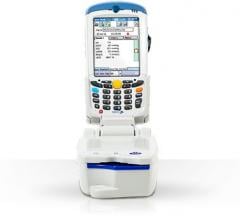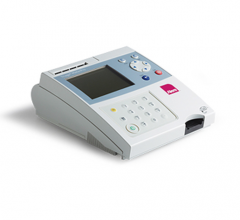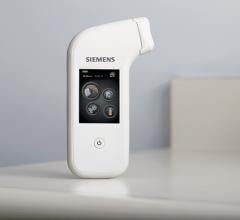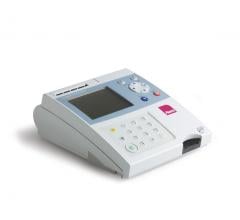August 20, 2008 - Diagnostic testing conducted at or near the site of the patient, known as patient-side point-of-care testing, enables doctors to make decisions on patients presenting in the emergency department with chest pain up to 20 minutes faster than those whose lab tests are evaluated by a standard lab, according to a study appearing this month in the journal Annals of Emergency Medicine.
The study, entitled "A Multicenter Randomized Controlled Trial Comparing Central Laboratory and Point-of-Care Cardiac Market Testing Strategies: The Disposition Impacted by Serial Point of Care Markers in Acute Coronary Syndromes Trial (DISPO-ACS)," is the first-ever randomized controlled clinical trial directly evaluating the impact of patient side point-of-care testing on 2,000 patients with chest pain, or possible acute coronary syndrome (ACS), on the length of stay in the emergency department.
Richard Ryan, M.D., vice chairman, department of emergency medicine at the University of Cincinnati College of Medicine led the study, which involved the emergency departments at The Jewish Hospital in Cincinnati, William Beaumont Hospitals in Detroit, the University of Pennsylvania and Stanford University.
"For patients presenting with chest pain, rapid diagnosis and the initiation of treatment can mean the difference between life and death," according to Dr. Ryan. "Ask yourself this question, 'Would I rather wait more than an hour to find out if I was having a heart attack or would I want to know in 15 minutes?' The answer 100 percent of the time would be 'the sooner the better, for my heart, my health, my life.' For these reasons, the study findings are very significant," he said.
The study results also illustrate conclusively that patient side point-of-care testing beats the turnaround time (the time between the drawing of a blood sample and the receipt of test result) of less than 60 minutes recommended by the American Heart Association, American College of Cardiology, European Society of Cardiology and the National Academy of Clinical Biochemistry's treatment guidelines. The preferred turnaround time, according to the guidelines, is less than 30 minutes.
The study was conducting using the hand-held Abbott i-STAT System, a diagnostic tool that provides real-time lab-quality results within minutes to accelerate the patient care decision-making process.
"The i-STAT results got to the doctor an average of 45 minutes faster than the lab results, and that's a lot of time when heart muscle is dying," said Christopher J. Lindsell, Ph.D., University of Cincinnati Medical Center and a study investigator. "This is why i-STAT patient side point-of-care testing demonstrated a trend toward reducing length of stay in the ED for both admitted and discharged patients."
Patient side point-of-care testing with i-STAT Troponin, which is used to help diagnose a heart attack, beats the 60-minute recommended turnaround time 98 percent of the time, compared to 53 percent for standard lab testing. Moreover, patient side point-of-care testing with i-STAT Troponin beats the preferred 30-minute turnaround time 87 percent of the time, compared to 3 percent for standard lab testing.
In addition to the benefits to patient care, i-STAT point-of-care testing with troponin contributed to as much as a 20-minute reduction in overall length of stay for some patients presenting in the ED with chest pain. The study authors concluded that based on such results, an additional 60 hours per month in ED bed availability could be realized in a facility that averaged a minimum of four chest pain patients per day.
The study was made possible with funding from Abbott Point of Care, which had no role in or influence on the study designs or results.
For more information: www.annemergmed.com,
www. abbottpointofcare.com


 August 05, 2019
August 05, 2019 








